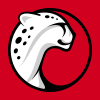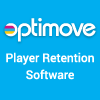American football wasn’t a sport when it was invented; it was a game created by one man and played by just two teams. Today, indie games built by small teams have the power to become tomorrow’s most popular eSports. During a recent session at Casual Connect Europe, the CEO and founder of Skillz, Andrew Paradise, explored the history of eSports, tactics for designing and building competitive games as well as what it takes for indie games to become tomorrow’s sports. In eSports, Andrew stressed “Fair matchmaking is important.”
DOWNLOAD SLIDES
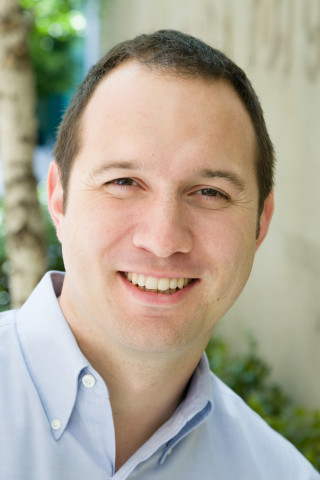
Andrew Paradise is the founder and CEO of Skillz, the first company to enable eSports in mobile games. Andrew founded Skillz after other successful ventures as an entrepreneur as well as working in venture capital and private equity investing. Recently Andrew shared with Casual Connect some of his accumulated wisdom about creating a sustainable business while making gaming better.
Casual Connect: Tell us about the work you do at your company. How did you come to work at your current company?
Andrew Paradise: I’m the CEO and founder of Skillz, the worldwide leader in mobile eSports. Prior to Skillz, I founded Aislebuyer, where we invented mobile self-checkout. Aislebuyer was acquired by Intuit in 2012. Prior to that, I founded Photrade, which was sold in 2009 to MPA Inc. I also previously worked in venture capital and private equity investing for Fort Washington Capital Partners and The Watermill Group.
CC: How have your past career experiences been helpful to you as CEO of Skillz?
Andrew: With anything repetitious, hopefully you can improve with each iteration. Skillz is the third company I’ve founded and run as CEO, so I’ve gone through the steps of building a business several times. From developing a business model and raising funding to building out and managing a team, I’ve had the opportunity to both fail and succeed several times. With each outcome, hopefully I’m learning how to do better next time.
CC: What do you do in your free time? What are your hobbies?
Andrew: Balance is one of the core Skillz values, so I try hard to make time to recharge. A few of my favorite things are hiking, skiing, relaxing with my dog Sam and, of course, playing video games.
CC: What is your favorite thing about your job?
Andrew: Coming to work every day knowing that my colleagues and I are working toward the same goal: developing the future of sports and gaming. We see the enormous opportunity in front of us and work tirelessly to build this new world, which will have a huge impact on the industry we love. Being part of that passion and drive is immeasurable.
CC: What inspired you to pursue this career?
Andrew: Each time I’ve founded a company, it’s been because I’ve seen a need that wasn’t being met in an industry. With Skillz, the idea for the company came to me one day when I was playing a mobile game. The game control buttons were strategically located next to advertisements to make players accidentally tap on ads while trying to play the game. I realized that there had to be a better way for game developers to make money without upsetting their players. That’s how Skillz was born, with the goal of providing an alternate revenue stream for developers while increasing player retention and enjoyment.

CC: Do you have any advice for someone interested in pursuing the same career?
Andrew: Hire a talented team that shares your vision for the future of your company and industry. If the company succeeds and grows, which is the ultimate goal, then eventually you’ll have to hand over certain responsibilities in order to ensure that it keeps scaling. Having a great team is what makes the difference between success and failure.
CC: What was your dream job as a child?
Andrew: I’ve wanted to start a company since I was ten. The first company name I came up with was JAM enterprises (named after my two best friends and me – Jeff, Andrew and Mike). We were always programming back then, so naturally JAM was going to be our first software company.
CC: In your younger years was there anything that hinted at your future career path in gaming? Did you expect to end up where you are today?
Andrew: I’ve always been interested in gaming and technology. I learned to program as a child by hacking a video game with a hex editor and later wrote my first game in Pascal. I’m lucky that I’m able to be both an entrepreneur and work in this industry that I’ve loved since childhood.
CC: When and how did you first become interested in coding?
Andrew: I would have to credit my father, who is an engineer. He bought an Apple II and an Osborne, which were early personal computers. It was playing with these computers that made me want to learn how to program.
CC: What is your creative process like? Where do you begin?
Andrew: I like to start with a huge whiteboard and sketch out the entire value chain of an idea. Our whole office is coated in wall-to-wall whiteboard paint, so it’s easy to find a place to be creative! Once I’ve created the value chain, then I’ll try to develop use cases for the idea/product. When I’ve constructed these cases, I’ll try to wire-frame a mockup on the whiteboard. I try not to start building anything using a computer until I’ve done several iterations on a whiteboard.
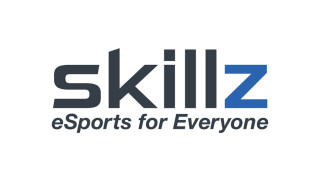
Andrew: All good ideas stand on the shoulders of giants. That was first said by Isaac Newton and still holds true today. I love studying the history of companies and products, and many of the influences on the Skillz product come from the gaming and commerce industries.
CC: If you had unlimited time and resources, what type of game would you create?
Andrew: I’ve always wanted to build an MMO that would work like the old multi-user dungeon titles but would be updated to have a modern graphical user interface. There have been a lot of attempts at this ever since Neal Stephenson described the Metaverse in Snowcrash. While there have been some different incarnations over the years, nothing has really allowed a user to connect different worlds together. Perhaps with VR headsets on the rise, this will be created in my lifetime.
CC: What is the most challenging part of game development for you? What is the most rewarding part?
Andrew: At Skillz we don’t develop games ourselves, but we do help our game developer partners optimize the player experience for multiplayer during the process of integrating the Skillz Tournament Management System (TMS). It can be difficult at times to find the perfect way for a developer’s single player game to become a multiplayer eSports competition, but when we all put our heads together and create a fun, engaging integration, it’s always really rewarding.
CC: What methods do you use to handle creative blocks? Do creative blocks occur frequently?
Andrew: I like to take long walks when the occasional creative block comes along. I recommend getting outside your comfort zone and walking in different directions that you don’t normally. Creativity is about being fearless and trying new things, which can be difficult if you don’t make a conscious effort to do so.
CC: What was a painful experience that you found a way out of? How did you do it?
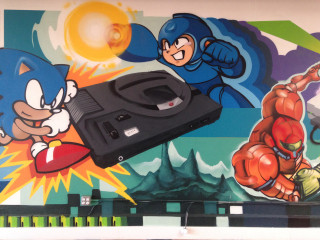
Andrew: In the early days of Skillz, we decided that the tournament system wasn’t “fun” enough, so we added a lot of colors and branding that ultimately made the Skillz Tournament Management System (TMS) incompatible with a lot of games. It was painful, but we reworked the interface to remove all of the new design work from the system so the games would function properly. It taught us a worthwhile lesson: “fun” doesn’t necessarily translate into adding more colors.
CC: What has been your proudest moment during your career so far? What led to this moment happening?
Andrew: Closing the Series B for Skillz back in September was a pivotal moment in my career, as it meant that we would get to continue to build out the whole vision for Skillz. This meant a lot to me, because it was a big step towards validating that the world wants eSports for everyone. It was also exciting because professional sports team owners from the NFL, NBA and MLB all contributed to our round, showing their support for eSports as an industry.
CC: What do you think will be the next big trend in the industry in the next three to five years? How are you incorporating this trend into your future plans?
Andrew: In recent years eSports have been experiencing massive growth in terms of popularity, revenue, viewership and funding. I think the next big trend is mobile eSports, which is the focus of our business as the leading provider of eSports infrastructure.
CC: What do you think your staff most commonly says about you? What do your employees think about you?
Andrew: I think they would say I’m honest, driven and passionate. I really care about our mission and the future of the industry, and it tends to show.
CC: What attributes do you look for in a member of your team?
Andrew: One of my biggest priorities is building a team comprised of intelligent, motivated and caring individuals whose personalities work well together. In pursuit of that cohesive team, we look for people who are honest and open, share our mission of making gaming better, work and learn as a team, generate results, have the willingness to go the extra mile when needed, and maintain a humble and balanced lifestyle.
CC: What inspired you to start your indie projects?
Andrew: As an avid gamer myself, I saw the need for the kind of service Skillz provides to both mobile game developers and players. Indie developers have always led the way for the future of the gaming industry, and we’re passionate about helping those indies generate revenue to keep building more games and delivering topnotch entertainment experiences to their valued players.
CC: What is something you have always wanted to talk about in the game industry but were never asked about?
Andrew: There have been a lot of interviews over the last few years, so I’m not sure if there’s an aspect of gaming that I’ve never been asked about. However, I would say that one important topic that isn’t brought up very much is diversity. I think that we don’t see enough diversity in the software industry as a whole, and particularly when it comes to gaming. It seems like a topic I rarely see being discussed at industry conferences. I think if there was more diversity in the labor force, then the industry would build more games for a more diverse audience.
CC: What kind of things or changes would you like to see out of others in the games space?
Andrew: I’d really like to see developers put players first. It feels like sometimes the player experience takes a back seat to monetization. This is particularly true of many free-to-play games that have built out pay-to-win systems. Gaming shouldn’t be about paying to win since that’s not really a game at all.
CC: What do you seek to focus on in your job and in the games industry?
Andrew: I strive to be the best leader I can be for every single employee entrusting me with their careers. In terms of the gaming industry, I focus on creating the best mobile eSports infrastructure that can exist. That is manifested in our Tournament Management System (TMS) and streaming technologies. We are rapidly spreading the word about the largely unheard of solution that Skillz can provide to game developers.
CC: What changes or help do you hope to bring to the industry?
Andrew: Our mission is to make gaming better. This is our second value (our first is honor). We can make gaming better by giving every developer the opportunity to build the next eSport and giving all players the opportunity to participate in eSports.
CC: What would you say your “mission statement” is?
Andrew: To enable mobile game development studios to create sustainable business while providing gamers everywhere with more meaningful competitions and a means of supporting themselves throughout their professional gaming careers. This has been our mission since day one and I hope that we will still be executing on it for years to come.







